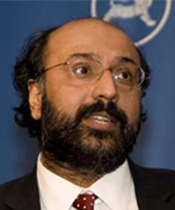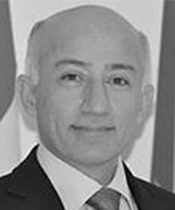 |
Dr. Dlawer Ala’AldeenDlawer Ala’Aldeen is the Founding President of the Middle East Research Institute, and former Minister of Higher Education and Scientific Research in Kurdistan Regional Government (2009-12). Ala’Aldeen cofounded the Kurdish Scientific and Medical Association, an advocacy organization focused on protecting Kurdish human rights and influencing UK and US policies on the Kurds. He has been involved since 1992 in supporting nation- and capacity-building projects in the Kurdistan region. |
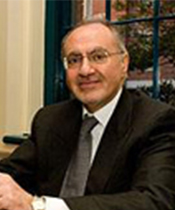 |
Ali AllawiAli Allawi is a Senior Visiting Fellow at the Kennedy School of Government, and he was Iraq’s first post-Saddam civilian Minister of Defense. During the 1980s and the 1990s, Allawi was a prominent member of the London-based Iraqi opposition to Saddam Hussein’s regime. Allawi returned to Iraq in September 2003 after 45 years of exile and in January 2005, he was elected to Iraq’s Transitional National Assembly. Allawi is also the author of two prize winning books, The Occupation of Iraq: Winning the War, Losing the Peace and The Crisis of Islamic Civilization. |
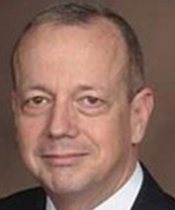 |
General (Ret.) John Allen
John Allen is Senior Fellow and Co-Director of the Center for 21st Century Security and Intelligence at Brookings. Prior to joining Brookings, Allen served as Special Presidential Envoy to the Global Coalition to Counter ISIL for 14 months. |
 |
Dr. Henri BarkeyHenri Barkey is the Director of the Middle East Program at the Woodrow Wilson International Center for Scholars. He is the former Bernard L. and Bertha F. Cohen Professor at Lehigh University. Barkey is also a former public policy scholar at the Wilson Center. He served as a member of the US Department of State’s Policy Planning Staff working primarily on issues related to the Middle East, the eastern Mediterranean, and intelligence from 1998 to 2000. |
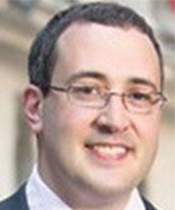 |
Geoffrey Batt
Geoffrey Batt is Managing Member of Euphrates Advisors, LLC, and has been investing on the Iraq Stock Exchange since January 2008. In October 2010, Batt launched the Euphrates Iraq Fund. Prior to his Iraq investments, he was an analyst at Quantrarian Capital Management. |
 |
Scott Carpenter
Scott Carpenter is the Managing Director at Jigsaw. Previously, Carpenter served as Deputy Assistant Secretary of State in the Bureau of Near East Affairs where he helped conceive and implement the Middle East Partnership Initiative (MEPI) before being named Coordinator for the Broader Middle East and North Africa Initiative (BMENA). His other roles in government include Director of Governance for the Coalition Provisional Authority in Iraq from April 2003 to July 2004, and Deputy Assistant Secretary in the Bureau of Human Rights and Democracy. |
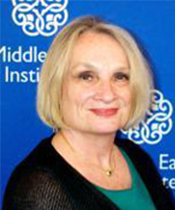 |
Ambassador Wendy ChamberlinWendy Chamberlin has been President of the Middle East Institute since 2007. She was Deputy High Commissioner for refugees from 2004 to 2007, and US Ambassador to Pakistan from 2001 to 2002. Chamberlin also served as Director of Global Affairs and Counterterrorism at the National Security Council (1991-93) and as Deputy in the Bureau of International Counter-Narcotics and Law Enforcement Affairs (1999-2001). |
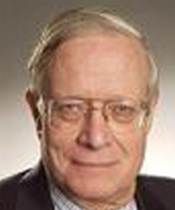 |
Dr. Anthony CordesmanAnthony Cordesman holds the Arleigh A. Burke Chair in Strategy at the Center for Strategic and International Studies (CSIS), where he has been Director of the Gulf Net Assessment Project and the Gulf in Transition Study, as well as Principal Investigator of the CSIS Homeland Defense Project. He is the author of a wide range of studies on US security policy, energy policy, and Middle East policy and served as a consultant to the US Department of State and US Department of Defense during the Afghanistan and Iraq wars. |
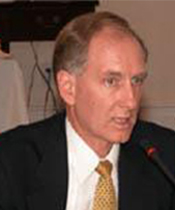 |
Dr. Eric Davis
Eric Davis is a Professor of Political Science at Rutgers University and former Director of the University’s Center for Middle Eastern Studies. Davis was appointed a Fellow at the Hoover Institution, Stanford University; the Institute for Advanced Study, Berlin; the Shelby Cullom Davis Center for Historical Studies, Princeton University; the Center for the Critical Analysis of Contemporary Culture, Rutgers University; and the Rutgers Center for Historical Analysis. He also has a fellowship from the American Academic Research Institute in Iraq (TAARII) and a grant from the US Institute of Peace (2008-09) to study the relationship between sectarian identities and civil society building in Iraq. |
 |
Todd Diamond
Todd Diamond is Director of the Middle East Program at Chemonics International. He is a democracy and governance specialist and crisis and conflict analyst with over 20 years of experience. He has worked in the Balkans, Central Asia, the Middle East, Africa, and Latin America on a variety of programs involving civil society actors, government institutions, and reforms. Diamond studied at the University of California, Berkeley and the Graduate Institute of International and Development Studies in Geneva. |
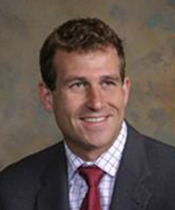 |
Thomas DonovanThomas Donovan is Managing Partner and Founder of the Iraq Law Alliance, PLLC. His expertise centers on petroleum and natural gas law and the surrounding corporate, employment, immigration, and customs issues. He also has considerable experience in public international law, litigation, and structured project finance. Donovan has published extensively on the development of the domestic Iraqi economy and issues associated with petroleum production and exploration. |
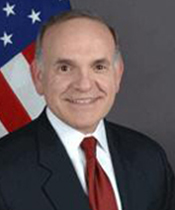 |
Ambassador Gary Grappo
Gary Grappo is a Distinguished Fellow at the Korbel School for International Studies at the University of Denver in the school’s Center for Middle East Studies and CEO of Equilibrium International Consulting, LLC. He was also the US Ambassador to the Sultanate of Oman from 2006 to 2009. |
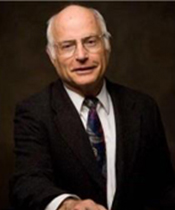 |
Michael M. Gunter
Michael M. Gunter is a Professor of political science at Tennessee Technological University and an authority on Kurds in Turkey and Iraq. Gunter has written more than seventy-five articles in scholarly journals and books, and has authored seven books on the Kurdish struggle. He is frequently consulted by media members for analysis and comment on breaking news in the Middle East. |
 |
Dr. Kathleen HicksKathleen Hicks is Senior Vice President, Henry A. Kissinger Chair, and Director of the International Security Program at the Center for Strategic and International Studies (CSIS). From 2009 to 2013, Hicks served as a senior civilian official in the Department of Defense. Confirmed in 2012 as Principal Deputy Undersecretary of Defense for Policy, she was responsible for advising the Secretary of Defense on global and regional defense policy and strategy pertaining to such areas as the Asia-Pacific and Persian Gulf regions, Syria, and Europe. Hicks is an adjunct with the RAND Corporation and a member of the Council on Foreign Relations. |
 |
Joost HiltermannJoost Hiltermann is the Program Director for Middle East and North Africa program at the International Crisis Group (ICG). Previously, he was ICG’s Chief Operating Officer (2013-14), Deputy Program Director for the Middle East and North Africa (2007-12), and Project Director for the Middle East (2002-07). |
 |
Feisal al-IstrabadiFeisal al-Istrabadi is the Director of the Center for the Study of the Middle East at Indiana University. He is a former Iraqi politician and diplomat who represented Iraq at the United Nations as Deputy Permanent Representative from 2004 to 2007. In 2004, he was one of the main drafters of Iraq’s Transitional Administrative Law (TAL). He is also the Founding Director of the Center for the Study of the Middle East at Indiana University, Bloomington. |
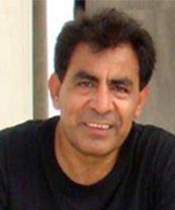 |
Rahman AljebouriRahman Aljebouri is the Senior Program Officer for the Middle East and North Africa at the National Endowment for Democracy (NED) with a focus on Iraq and the Gulf states. He supports capacity-building efforts that help local civil society institutions promote democracy. He oversees local initiatives implemented by local partners that empower citizens, monitor human rights, and hold governments accountable to their own citizens. |
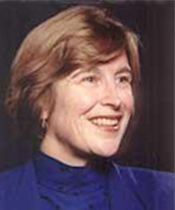 |
Ambassador Elizabeth Jones
Elizabeth Jones was appointed Acting Assistant Secretary of State for the Near East in June 2012 after having served as Deputy Special Representative for Afghanistan and Pakistan. Jones was a Foreign Service Officer for 35 years and achieved the highest rank of Career Ambassador. She was Assistant Secretary of State for Europe and Eurasia for 4 years (2001-05) under Secretary Colin Powell. She served as Principal Deputy Assistant Secretary for the Near East, Deputy Chief of Mission at the US Embassies in Bonn and Islamabad, and her other overseas postings were in Kabul, Cairo, Amman, Baghdad and Berlin. |
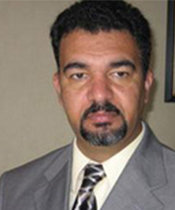 |
Dr. Abbas Kadhim
Abbas Kadhim is a Fellow at the Foreign Policy Institute at Johns Hopkins University’s Paul H. Nitze School of Advanced International Studies (SAIS) with research interests in Iraq, Iran, the Persian Gulf, and Islam. Between 2005 and 2013, Kadhim was an Assistant Professor of national security affairs and Middle East studies at the Naval Postgraduate School in Monterey, California, and a Visiting Scholar at Stanford University. Prior to joining SAIS, Kadhim held a Senior Government Affairs position at the Embassy of Iraq in Washington, DC. |
 |
Dr. Kimberly Kagan
Kimberly Kagan is the Founder and President of the Institute for the Study of War. She is a military historian who has taught at the US Military Academy at West Point, Yale, Georgetown, and American University. Kagan served in Kabul for 17 months from 2010 to 2012 working for commanders of the International Security Assistance Force, General David H. Petraeus and subsequently General John Allen. She participated formally on the Joint Campaign Plan Assessment Team for Multi-National Force-Iraq—US Mission-Iraq in October 2008 and October 2009, and as part of the Civilian Advisory Team for the CENTCOM strategic review in January 2009. |
 |
Dr. Laith Kubba
Laith Kubba is the Director for the Middle East and North Africa at the National Endowment of Democracy (NED). Kubba was a Senior Adviser to Iraqi Prime Minister Ibrahim Jaffari and a spokesman for the Iraqi government. From 1993 until 1998, he was the Director of International Relations at the Al Khoei Foundation in London. He has also served on the boards of regional institutions including the Iraq Foundation and the Arab Organization for Human Rights. |
Dr. Kamil Mahmoud
Kamil Mahmoud has almost 20 years of experience as an engineering consultant specializing airframe design, and response and control. For 27 years, Mahmoud was the Head of Research Team for several ministries in Iraq. He also has experience in strategic studies and strategic planning and has advised on strategic development projects. |
 |
Dr. Kanan Makiya
Kanan Makiya is the Sylvia K. Hassenfeld Professor of Islamic and Middle Eastern Studies at Brandeis University. His book Republic of Fear: The Politics of Modern Iraq, became a best-seller after Saddam Husain’s invasion of Kuwait. Makiya has also written for The Independent, The New York Times, The New York Review of Books, The Times Literary Supplement and The Times. In 2003 he founded the Iraq Memory Foundation, an NGO, based in Baghdad and the United States, dedicated to issues of remembrance, violence, and identity formation. |
 |
Dr. Phebe Marr
Phebe Marr is a prominent historian of modern Iraq. A retired professor, she was Research Professor at the National Defense University and a Professor of history at the University of Tennessee and at Stanislaus State University in California. She is the author of The Modern History of Iraq and a member of the Board of Advisory Editors of The Middle East Journal. |
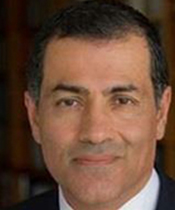 |
Dr. Vali Nasr
Vali Nasr is the Dean of the Johns Hopkins University’s Paul H. Nitze School of Advanced International Studies (SAIS), a Senior Fellow in foreign policy at Brookings Institution, and a contributor at Bloomberg View. He served as Senior Adviser to the US Special Representative for Afghanistan and Pakistan, Ambassador Richard Holbrooke, between 2009 and 2011. |
 |
Ambassador John Negroponte
John Negroponte, a US career diplomat and national security official, held government positions abroad and in Washington between 1960 and 1997 and again from 2001 to 2008. He has been Ambassador to Honduras, Mexico, the Philippines, the United Nations, and Iraq. Negroponte is Vice Chairman of McLarty Associates, and he also holds a teaching position at his alma mater, Yale University, as a Senior Research Fellow in grand strategy and as a lecturer in international relations. |
 |
Dr. Brendan O’Leary
Brendan O’Leary is the Lauder Professor of Political Science at the University of Pennsylvania. O’Leary is the Series Editor of National and Ethnic Conflict in the 21st Century, published by the University of Pennsylvania Press. He is the author, coauthor, and coeditor of twenty-one books; and the author or coauthor of over 120 articles or chapters in peer-reviewed journals and university presses. O’Leary has been a political and constitutional adviser to the United Nations, the European Union, the Kurdistan Regional Government of Iraq, the Governments of the United Kington and Ireland, and to the British Labor Party during the Irish peace process. |
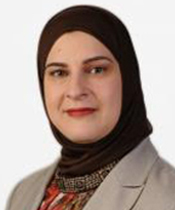 |
Manal Omar
Manal Omar is the Associate Vice President for the Middle East and Africa Center at the US Institute of Peace. Omar has worked for over 15 years in the field of women’s rights, peacebuilding, humanitarian aid, and development. She is dedicated to creating a safe space for dialogue on current events in the Muslim and Arab world on identity, civil society, and women’s rights. |
 |
Dr. Meghan O’Sullivan
Meghan O’Sullivan is the Jeane Kirkpatrick Professor of the Practice of International Affairs and Director of the Geopolitics of Energy Project at Harvard University’s Kennedy School. Her expertise includes the geopolitics of energy, decision making in foreign policy, nation-building, counterinsurgency, and the Middle East. Between 2004 and 2007, she was Special Assistant to President George W. Bush and Deputy National Security Advisor for Iraq and Afghanistan. |
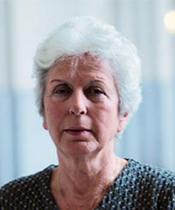 |
Dr. Marina Ottaway
Marina Ottaway is a Senior Scholar at the Woodrow Wilson Center. Ottaway joined the Wilson Center after 14 years at the Carnegie Endowment for International Peace, during which she played a central role in launching the Middle East Program. |
 |
General (Ret.) David Petraeus
David Petraeus is Chairman of the KKR Global Institute. Prior to joining KKR, Petraeus served over 37 years in the US military, including Command of Coalition Forces in Iraq, Command of US Central Command, and Command of Coalition Forces in Afghanistan. Following his service in the military, Petraeus served as the Director of the Central Intelligence Agency (CIA) from 2011 to 2012. |
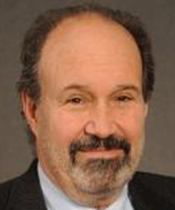 |
Dr. David Pollock
David Pollock is the Kaufman Fellow at The Washington Institute. He served previously as Senior Advisor for the Broader Middle East at the State Department where he helped launch the department’s $15 million Iraqi Women’s Democracy Initiative. Pollock has served as a visiting lecturer at Harvard University and as Assistant Professor at George Washington University. |
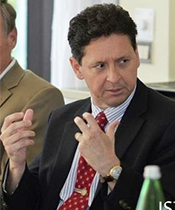 |
Max Primorac
Max Primorac is the President of the Institute for Stabilization and Transition. From 2007 to 2008, Primorac was Senior Advisor for Transition and Stabilization to the US Secretary of State’s Coordinator for Iraq where he managed the interagency process of the civilian component of the President Surge initiative In 2006, he was Deputy Director of the US Embassy’s Iraq reconstruction office with oversight of $2.4 billion in programs supporting public administration reform, public procurement, anti-corruption, private sector development, banking, agriculture, industry, housing, health, and central government capacity building. |
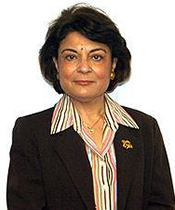 |
Ambassador Rend Al-Rahim
Rend Al-Rahim is the Executive Director of the Iraq Foundation. She was formerly a Senior Fellow at the US Institute of Peace, the Iraqi Representative to the United States, and the Iraqi Chief of Mission (2004). |
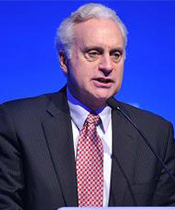 |
Ambassador Francis J. Ricciardone
Francis J. Ricciardone assumes office as the twelfth President of the American University in Cairo on July 1, 2016. He was formerly the Vice President and Director of the Atlantic Council’s Rafik Hariri Center for the Middle East after serving as a career Foreign Service Officer. His assignments included Ambassador to Turkey (2011-14), Chargé d’affaires and Deputy Ambassador to Afghanistan (2009-10), Ambassador to Egypt (2005-08), and Ambassador to the Philippines and Palau (2002-05). As Special Coordinator for the Transition of Iraq (1999-2001), Ricciardone supported the reestablishment of the democratic opposition to the Saddam Hussein regime. Secretary of State Colin Powell assigned him in 2004 to organize the new US Embassy in Baghdad to replace the Coalition Provisional Authority. |
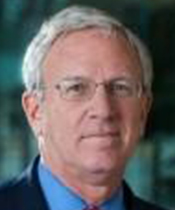 |
Ambassador Charles Ries
Charles Ries is Vice President of the RAND Corporation, where he oversees RAND’s international offices and growing international presence, and a Senior Fellow whose research has focused on the economics of development. Ries’ three decades in the US diplomatic service included an assignment as Coordinator for Economic Transition in Iraq at the US Embassy in Baghdad (2007-08). |
 |
Charles Tripp
Charles Tripp is Professor of Politics at the School of Oriental and African Studies (SOAS), University of London, as well as a Fellow of the British Academy. Prior to the 2003 invasion of Iraq, Tripp was part of a team that advised Tony Blair on the consequences of going to war. His research interests include the nature of autocracy, state and resistance in the Middle East, the politics of Islamic identity, and the relationship between art and power. |
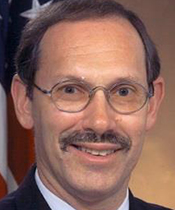 |
Dr. Dov Zakheim
Dov Zakheim is Senior Adviser at the Center for Strategic and International Studies (CSIS), a Senior Fellow at CNA Corp, and an Atlantic Council Board Director. Previously he was Senior Vice President of Booz Allen Hamilton, where he led support of US Combatant Commanders. From 2001 to 2004, Zakheim served as the Under Secretary of Defense (Comptroller) and Chief Financial Officer for the Department of Defense. From 2002 to 2004 he was also DOD coordinator of civilian programs in Afghanistan. |
